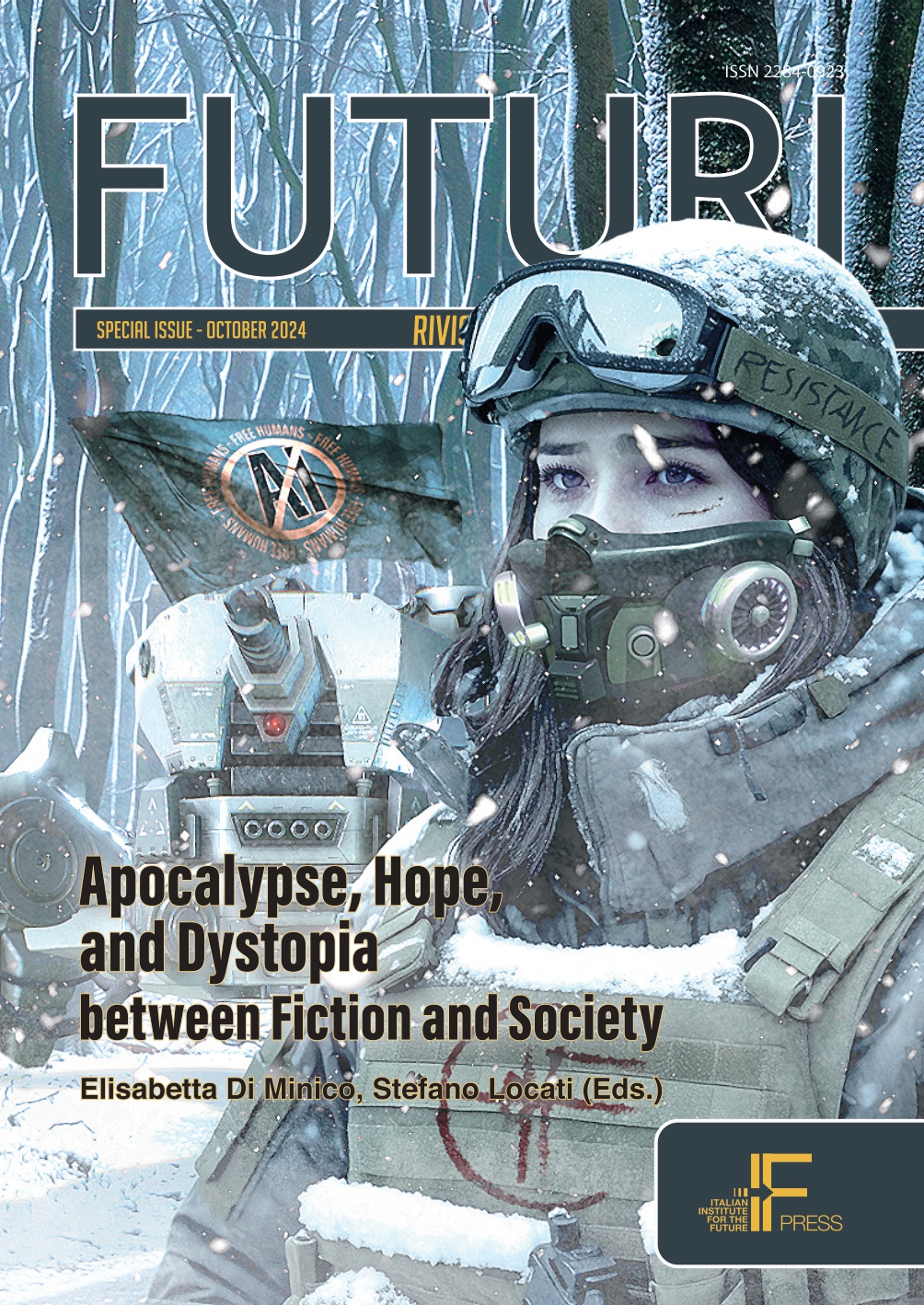
Pubblicato 14-02-2025
Parole chiave
- Graphic Novel,
- Digital Critique,
- Digital Culture,
- Literacy,
- Post-apocalypse
- Dystopia ...Più

Questo lavoro è fornito con la licenza Creative Commons Attribuzione - Non commerciale - Non opere derivate 4.0 Internazionale.
Abstract
This paper examines the works of Gipi (Gianni Pacinotti), a seminal figure in Italian graphic novels, through the analysis of his science fiction graphic novel La terra dei figli. The study explores how Gipi foregrounds societal fears of environmental catastrophe and the disintegration of human-centered values in a post-apocalyptic world. While fitting into the groove of the postapocalyptic and dystopian genre, the graphic novel stages a metaphor for a future society that has abandoned literacy in favor of post-digital practices, thus performing a critique of the practices and values of digital culture and online communities.
The study underscores Gipi’s view of the divisive effects of the Internet on society, particularly through phenomena such as filter bubbles and echo chambers. It emphasizes his concern about social media’s potential to deteriorate communication and exacerbate social division. Gipi’s work signals a longing for a lost literary culture, exemplified and symbolized by physical books. Despite this, the study questions whether his fear and resistance to societal change are typical responses to inevitable transformations. By investigating Gipi’s portrayal of literate versus digital cultures, this study provides insight into the complexities of contemporary media and their societal impact.
